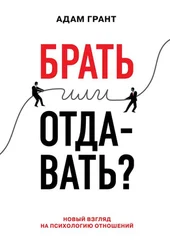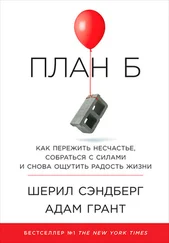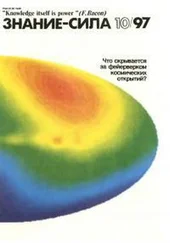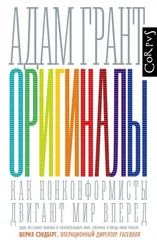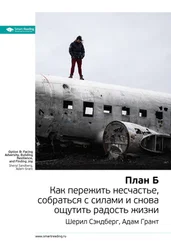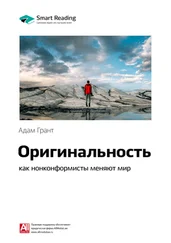Anne Marthe van der Bles et al., «The Effects of Communicating Uncertainty on Public Trust in Facts and Numbers», PNAS 117 (2020): 7672–83.
Uma R. Karmarkar and Zakary L. Tormala, «Believe Me, I Have No Idea What I’m Talking About: The Effects of Source Certainty on Consumer Involvement and Persuasion», Journal of Consumer Research 36 (2010): 1033–49.
Tania Lombrozo, «In Science Headlines, Should Nuance Trump Sensation?», NPR, August 3, 2015, www.npr.org/sections/13.7/2015/08/03/428984912/in-science-headlines-should-nuance-trump-sensation.
Vincenzo Solfrizzi et al., «Coffee Consumption Habits and the Risk of Mild Cognitive Impairment: The Italian Longitudinal Study on Aging», Journal of Alzheimer’s Disease 47 (2015): 889–99.
Ariana Eunjung Cha, «Yesterday’s Coffee Science: It’s Good for the Brain. Today: Not So Fast …*» Washington Post, August 28, 2015, www.washingtonpost.com/news/to-your-health/wp/2015/07/30/yesterdays-coffee-science-its-good-for-the-brain-today-not-so-fast.
«Do Scientists Agree on Climate Change?», NASA, https://climate.nasa.gov/faq/17/do-scientists-agree-on-climate-change; John Cook et al., «Consensus on Consensus: A Synthesis of Consensus Estimates on Human-Caused Global Warming», Environmental Research Letters 11 (2016): 048002; David Herring, «Isn’t There a Lot of Disagreement among Climate Scientists about Global Warming?», ClimateWatch Magazine, February 3, 2020, www.climate.gov/news-features/climate-qa/isnt-there-lot-disagreement-among-climate-scientists-about-global-warming.
В обсуждениях климатических изменений репортерам и активистам подчас тоже не хватает сложности. Пессимистический посыл взбудоражит тех, кто боится, что планета сгорит, но, согласно исследованиям, к действиям и выступлениям в защиту эффективнее стимулируют потенциальные блага для общества, такие как экономический и научный прогресс и повышение нравственности и отзывчивости у населения. Люди в диапазоне от обеспокоенных до сомневающихся скорее перейдут к действиям, если поверят, что их дела приведут к измеримым результатам. По данным исследований, помимо того, чтобы апеллировать к либеральным ценностям вроде сострадания и справедливости, журналистам стоило бы причислять к патриотизму и другие, например защиту свободы, и более консервативные: сохранение неприкосновенности природы или защиту планеты.
Carolyn Gramling, «Climate Models Agree Things Will Get Bad. Capturing Just How Bad Is Tricky», ScienceNews, January 7, 2020, www.science news.org/article/why-climate-change-models-disagree-earth-worst-case-scenarios.
Troy H. Campbell and Aaron C. Kay, «Solution Aversion: On the Relation between Ideology and Motivated Disbelief», Journal of Personality and Social Psychology 107 (2014): 809–24.
Paul G. Bain et al., «Co-Benefits of Addressing Climate Change Can Motivate Action around the World», Nature Climate Change 6 (2016): 154–57.
Matthew Feinberg and Robb Willer, «The Moral Roots of Environmental Attitudes», Psychological Science 24 (2013): 56–62.
Christopher Wolsko, Hector Ariceaga, and Jesse Seiden, «Red, White, and Blue Enough to Be Green: Effects of Moral Framing on Climate Change Attitudes and Conservation Behaviors», Journal of Experimental Social Psychology 65 (2016): 7–19.
Mary Annaise Heglar, «I Work in the Environmental Movement. I Don’t Care If You Recycle», Vox, May 28, 2019, www.vox.com/the-highlight/2019/5/28/18629833/climate-change-2019-green-new-deal; Bob Berwyn, «Can Planting a Trillion Trees Stop Climate Change? Scientists Say It’s a Lot More Complicated», Inside Climate News, May 27, 2020, insideclimatenews.org/news/26052020/trillion-trees-climate-change?gclid=EAIaIQobChMIrb6n1qHF6gIVFInICh2kggWNEAAYAiAAEgI-sPD_BwE.
Lewis Bott et al., «Caveats in Science-Based News Stories Communicate Caution without Lowering Interest», Journal of Experimental Psychology: Applied 25 (2019): 517–42.
See, for example, Ute Hülsheger, Neil R. Anderson, and Jesus F. Salgado, «Team-Level Predictors of Innovation at Work: A Comprehensive Meta-analysis Spanning Three Decades of Research», Journal of Applied Psychology 94 (2009): 1128–45; Cristian L. Dezsö and David Gaddis Ross, «Does Female Representation in Top Management Improve Firm Performance? A Panel Data Investigation», Strategic Management Journal 33 (2012): 1072–89; Samuel R. Sommers, «On Racial Diversity and Group Decision Making: Identifying Multiple Effects of Racial Composition on Jury Deliberations», Journal of Personality and Social Psychology 90 (2006): 597–612; Denise Lewin Loyd et al., «Social Category Diversity Promotes Premeeting Elaboration: The Role of Relationship Focus», Organization Science 24 (2013): 757–72.
Elizabeth Mannix and Margaret A. Neale, «What Differences Make a Difference? The Promise and Reality of Diverse Teams in Organizations», Psychological Science in the Public Interest 6 (2005): 31–55.
Неоднозначность иногда остается незамеченной. Недавно мы с коллегами опубликовали статью под названием The Mixed Effects of Online Diversity Training («Смешанные эффекты онлайн-тренинга по разнообразию» [ Edward H. Chang et al., «The Mixed Effects of Online Diversity Training», PNAS 116 (2019): 7778–83. ]). Мне казалось очевидным, что мы пишем о сложности тренингов по межгрупповому взаимодействию, но, судя по комментариям, одни восприняли статью как аргумент в пользу тренингов, а другие — как подтверждение их бесполезности. Предвзятость подтверждения и предубеждение желательности живут и здравствуют.
Lisa Leslie, «What Makes a Workplace Diversity Program Successful?», Center for Positive Organizations, January 22, 2020, positiveorgs.bus.umich.edu/news/what-makes-a-workplace-diversity-program-successful.
Согласно ряду экспериментов, признание парадоксов и противоречий в противовес избеганию стимулирует появление креативных идей и решений [ Ella Miron-Spektor, Francesca Gino, and Linda Argote, «Paradoxical Frames and Creative Sparks: Enhancing Individual Creativity through Conflict and Integration», Organizational Behavior and Human Decision Processes 116 (2011): 229–40; Dustin J. Sleesman, «Pushing Through the Tension While Stuck in the Mud: Paradox Mindset and Escalation of Commitment», Organizational Behavior and Human Decision Processes 155 (2019): 83–96. ]. Однако авторы других исследований выяснили, что, признавая парадоксы и противоречия, люди чаще держатся за ошибочные убеждения и бессмысленные поступки. Видимо, парадоксу надо еще некоторое время мариноваться.
Читать дальше
Конец ознакомительного отрывка
Купить книгу

